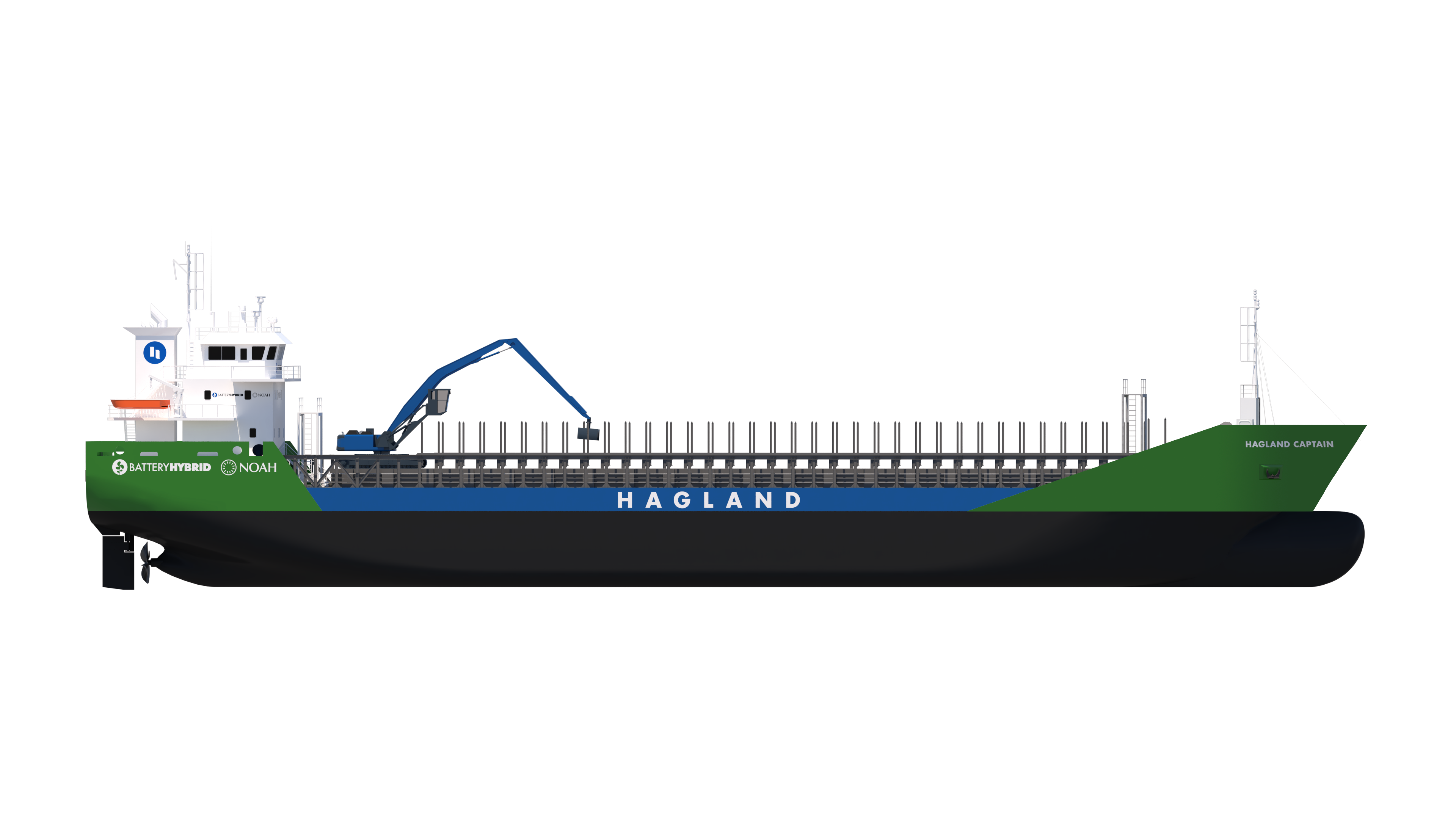Shipping by sea is the most environmentally friendly way to transport cargo and short sea shipping is no exception. To put in simple: with just 4 times the engine size of a large lorry / truck, we transport 150 times the cargo. So even with traditional ships, our emissions (NOx and CO2) are abt 10 % per ton – mile (AER – transport work) compared to land transport.
We are still dedicated to do our part to reduce emissions for both greenhouse gases and emissions influencing the local environment. By end of 2023, Hagland Shipping’s owned fleet will consist of 50 % battery hybrid vessels, making it by far the most modern and sustainable fleet within our segment.
Steps towards a better future
In 2018, Hagland Shipping entered into a long term contract with NOAH for the conversion of one of our ship to become the worlds first plug-in battery hybrid in our segment. During the process we evaluated various fuel types and technologies that would suit the nature of short sea shipping today and tomorrow and the conclusion was we could not wait 5-10 years without taking any steps.
Hybrid solution
- SCR system installed to reduce the majority of the NOx emissions, up to 90 %
- Shore power connection for charging and zero emission in ports
- Large battery for optimized peak shaving and emission free in/out of ports
- Electric cargo handler
- Overall CO2 emissions abt 40 % lower than the older ships in this segment
Emissions reduced by 80 to 90 per cent
In Ports:
Our ships spend considerable time in ports for loading and discharging of all types of bulk material. The large battery enables the vessel up to 30 minutes of electric sailing when entering and leaving ports. The cargo handler and all other power consumers onboard will receive power from the shore connection while also recharging the battery to ensure 0 emissions while in port.
At Sea:
The NOx reducer will remove abt 90 % of the NOx emissions at sea by using Urea as catalyst. The main engine will get support from the battery for both peak shaving and the to always run on minimum specific fuel consumption, reducing the carbon intensity for the transport.